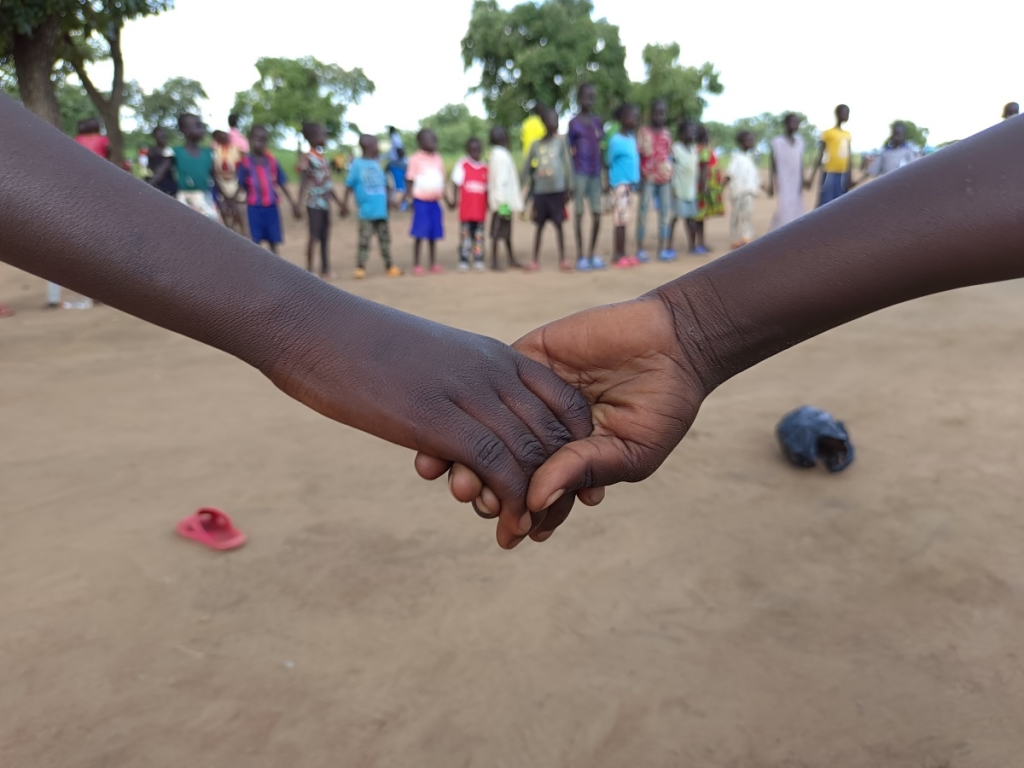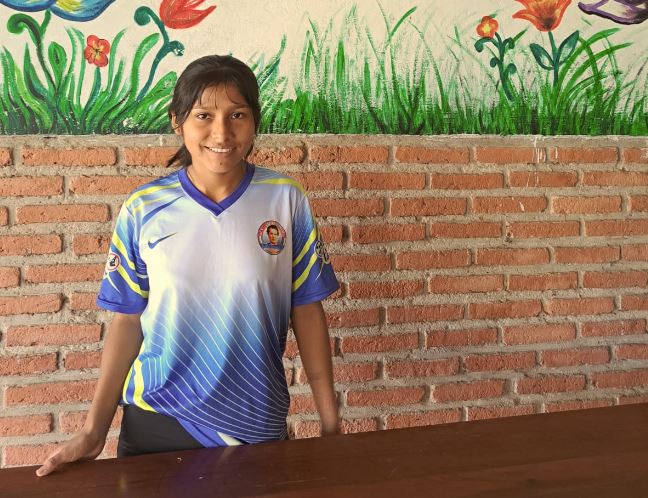WORLD FOOD DAY: Salesian Missions Highlights School Feeding Programs, Agriculture Education that Combat Hunger
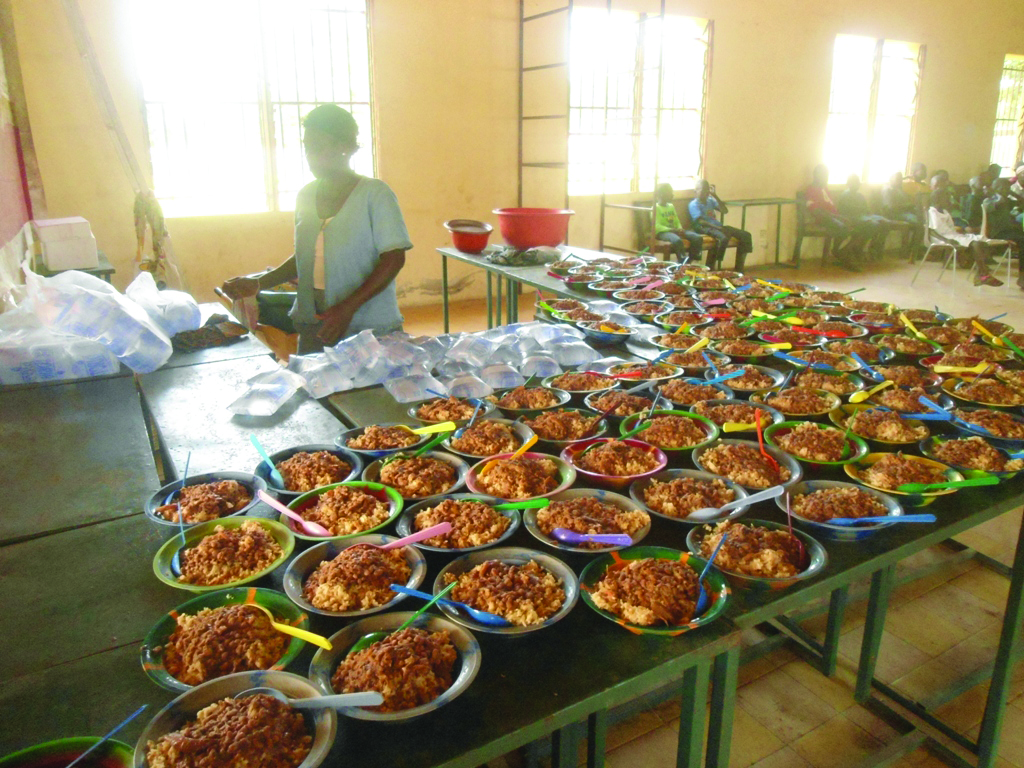
(MissionNewswire) Salesian Missions joins the Food and Agriculture Organization of the United Nations (FAO) and other organizations around the globe in honoring World Food Day.
Celebrated each year on Oct. 16, the day was established to bring attention to the plight of the world’s hungry and undernourished while providing an opportunity for a deeper understanding of the complex solutions for ending hunger. This year’s theme “Climate is changing. Food and agriculture must too” aims to highlight the challenges faced by the world’s poorest—many of whom are farmers, fishers and pastoralists—who are being hit hardest by higher temperatures and an increasing frequency in weather-related disasters causing food insecurity.
FAO has noted that the global population is growing and is expected to reach 9.6 billion by 2050. To meet such a demand, FAO notes that agriculture and food systems will need to adapt to the adverse effects of climate change and become more resilient, productive and sustainable. FAO is calling on countries to address food and agriculture in their climate action plans and invest more in rural development.
More than 795 million people around the world go hungry every day, according to FAO. More than 70 percent of food insecure people live in rural areas of Africa, Asia, Latin America and the Near East. Of those who go hungry daily, 98 percent reside in developing countries where there is not only a shortage of food but major challenges for aid to reach its destination.
Salesian Missions’ programs are dedicated to facilitating agricultural education and providing feeding programs in more than 130 countries around the globe. Operating primary schools, technical training centers, agricultural schools, youth centers, orphanages and programs for street children, Salesian missionaries are on the front lines of the battle against hunger.
Because Salesian missionaries work and live in the communities they serve, they are also perfectly positioned to ensure that the distribution of food aid reaches those who need it most while offering programs that teach agricultural techniques to increase local food production. Through ongoing partnerships with organizations like Stop Hunger Now and Feed My Starving Children, Salesian missionaries are able to deliver life-saving food aid and other supplies to those in need in their communities.
“Salesian missionaries are an integral part of the existing infrastructure in many countries and Salesian Missions plays an important role in making sure aid from the United States reaches its destination country and gets into the hands of those who need it most,” says Father Mark Hyde, executive director of Salesian Missions, the U.S. development arm of the Salesians of Don Bosco.
Salesian food programs provide meals to students during the school day and serve as an incentive for families to send their children to school. As a result of the feeding programs, students are thriving. Many have gained weight, suffered fewer illnesses and become more focused on their studies. Teachers are seeing better student performance in class, a decrease in absenteeism and an increase in program enrollment rates.
“Feeding programs are a necessity to meet the needs of the massive number of children around the globe who are hungry today,” adds Fr. Hyde. “Meals children receive at Salesian schools may be their only meals. This food not only encourages them to attend school, it allows them to focus on getting the education they need without worrying about where their next meal will come from. Children cannot learn on an empty stomach.”
This World Food Day, Salesian Missions is proud to highlight some of its agriculture education and feeding programs that nourish students so they can focus on their studies and later become leaders in their communities.
CAMBODIA
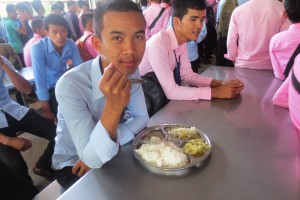 Thanks to a recent shipment of rice meals from Stop Hunger Now more than 700 students at the Don Bosco Technical Center and the Don Bosco Hotel School in Sihanoukville, a city in southwestern Cambodia located on the Gulf of Thailand, have access to better nutrition. Both the Don Bosco Technical Center and the Don Bosco Hotel School provide two-year skill training programs to poor and orphaned youth between the ages of 17 and 22 years with limited opportunities for education. The Don Bosco Hotel School focuses on hospitality programs to prepare students for work in restaurants, at catering companies and hotels, and in other areas of the tourism field. The Don Bosco Technical Center, the largest technical school in the area, offers courses in electricity, electronics, automotive repair, printing, web design, audiovisual editing and production, journalism, social communication, secretarial skills, sewing, culinary arts, hotel management and welding. The donated rice meals are provided to students during the school day, and for 161 students who are boarders at the schools, meals are provided three times a day.
Thanks to a recent shipment of rice meals from Stop Hunger Now more than 700 students at the Don Bosco Technical Center and the Don Bosco Hotel School in Sihanoukville, a city in southwestern Cambodia located on the Gulf of Thailand, have access to better nutrition. Both the Don Bosco Technical Center and the Don Bosco Hotel School provide two-year skill training programs to poor and orphaned youth between the ages of 17 and 22 years with limited opportunities for education. The Don Bosco Hotel School focuses on hospitality programs to prepare students for work in restaurants, at catering companies and hotels, and in other areas of the tourism field. The Don Bosco Technical Center, the largest technical school in the area, offers courses in electricity, electronics, automotive repair, printing, web design, audiovisual editing and production, journalism, social communication, secretarial skills, sewing, culinary arts, hotel management and welding. The donated rice meals are provided to students during the school day, and for 161 students who are boarders at the schools, meals are provided three times a day.
INDIA
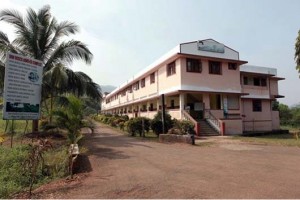 The Don Bosco Agro-Educational Complex, located in the town of Sulcorna in the state of Goa in western India, developed the area’s first agriculture college. The college utilizes 110 acres of fertile land for hands-on farm training and emphasizes organic cultivation in its four-year degree program. The mission of the college is to train undergraduates and postgraduates in the latest agricultural practices and modern technologies while moving toward efficiency in farming within Goa by exploring and testing new techniques in agriculture, horticulture, floriculture and animal husbandry. Salesian missionaries in the area are working toward marketing agricultural products and services to local farmers by utilizing the college and its staff as a resource for everything related to farming and off-farm activities. They are also working with local women’s groups, helping them to plant specific crops that have greater viability in the marketplace. Salesian missionaries hope the agriculture degree program will entice more local youth to choose agriculture as their long-term livelihood.
The Don Bosco Agro-Educational Complex, located in the town of Sulcorna in the state of Goa in western India, developed the area’s first agriculture college. The college utilizes 110 acres of fertile land for hands-on farm training and emphasizes organic cultivation in its four-year degree program. The mission of the college is to train undergraduates and postgraduates in the latest agricultural practices and modern technologies while moving toward efficiency in farming within Goa by exploring and testing new techniques in agriculture, horticulture, floriculture and animal husbandry. Salesian missionaries in the area are working toward marketing agricultural products and services to local farmers by utilizing the college and its staff as a resource for everything related to farming and off-farm activities. They are also working with local women’s groups, helping them to plant specific crops that have greater viability in the marketplace. Salesian missionaries hope the agriculture degree program will entice more local youth to choose agriculture as their long-term livelihood.
NICARAGUA
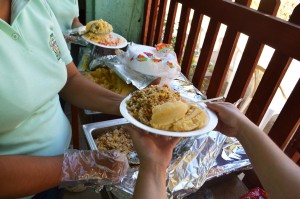 Children, the elderly and those living in poverty within the Salesian Diocese of Estelí, the third largest city in Nicaragua, have access to better nutrition thanks to an ongoing partnership between Salesian Missions and Feed My Starving Children, a non-profit Christian organization committed to “feeding God’s children hungry in body and spirit.” The partnership has resulted in a donation of rice meals that has benefited more than 20,000 people in Estelí, including students in Salesian schools and those living within poor communities. The majority of beneficiaries have few resources and live in extreme poverty. The donated rice meals provided to Salesian schools are given to students during the school day as part of a free lunch program begun by Salesian missionaries to meet the needs of the many area families with limited resources to feed their children.
Children, the elderly and those living in poverty within the Salesian Diocese of Estelí, the third largest city in Nicaragua, have access to better nutrition thanks to an ongoing partnership between Salesian Missions and Feed My Starving Children, a non-profit Christian organization committed to “feeding God’s children hungry in body and spirit.” The partnership has resulted in a donation of rice meals that has benefited more than 20,000 people in Estelí, including students in Salesian schools and those living within poor communities. The majority of beneficiaries have few resources and live in extreme poverty. The donated rice meals provided to Salesian schools are given to students during the school day as part of a free lunch program begun by Salesian missionaries to meet the needs of the many area families with limited resources to feed their children.
Salesian missionaries and volunteers also distributed donated rice meals to families in need through community outreach efforts and at local churches. The food aid helped elderly residents receive proper nutrition and aided in improving their strength, health and mental well-being. Food aid was also delivered directly to families at home to ensure that children receive more than just the one meal offered at school.
SWAZILAND
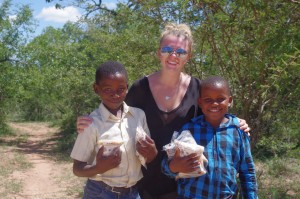 Close to 1,000 people received better nutrition thanks to a recent shipment of fortified rice meals from Feed My Starving Children to the Salesian organization, Manzini Youth Care, located in the city of Manzini in Swaziland. Manzini Youth Care was established in the 1970s and provides services to marginalized youth including free primary school for children who have dropped out of school due to poverty, two vocational training centers for older youth, residential care for former street children and a drop-in school for street children when they first come in off the streets. Manzini Youth Care also serves the communities surrounding the city of Manzini to help residents improve their living standards, sanitation and food security.
Close to 1,000 people received better nutrition thanks to a recent shipment of fortified rice meals from Feed My Starving Children to the Salesian organization, Manzini Youth Care, located in the city of Manzini in Swaziland. Manzini Youth Care was established in the 1970s and provides services to marginalized youth including free primary school for children who have dropped out of school due to poverty, two vocational training centers for older youth, residential care for former street children and a drop-in school for street children when they first come in off the streets. Manzini Youth Care also serves the communities surrounding the city of Manzini to help residents improve their living standards, sanitation and food security.
Few farmers in the country own agricultural machinery such as tractors or ploughs and as a result, must rely on manual labor and traditional farming methods that require them to spend long hours in the fields producing very little food. Unable to produce enough food to support its population, Swaziland residents are vulnerable to fluctuating food prices from food imports. As a result of the donation, students are thriving. Many have gained weight, suffered fewer illnesses and become more focused on their studies. Teachers are seeing better student performance in class, a decrease in absenteeism and an increase in program enrollment rates as a result of the program.
###
Sources:


